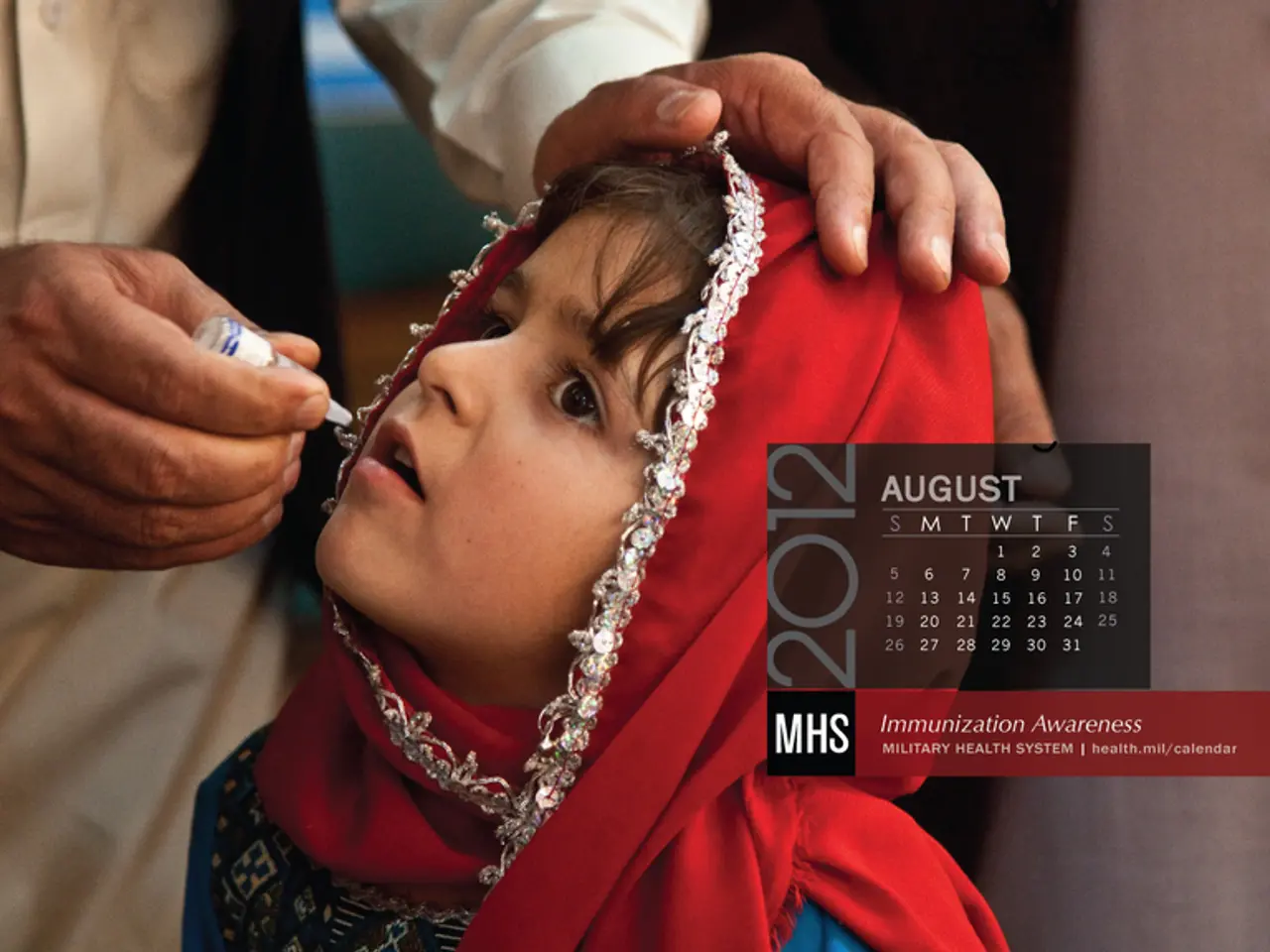Rubella Antibodies: Explanation, Further Actions, and Additional Info
Pregnancy is a crucial time for both mother and child, and taking necessary precautions to ensure a healthy outcome is essential. One such precaution involves understanding and maintaining immunity against the rubella virus.
Rubella, also known as German measles, can pose serious risks to unborn children if a pregnant person contracts the virus, particularly during the first trimester. Fortunately, immunity against rubella can be achieved through vaccination or a past infection, and these antibodies remain in the bloodstream long after recovery, providing protection against future infections.
A rubella test during pregnancy is recommended to check for immunity against the rubella virus. A positive rubella-IgG result indicates past infection or vaccination and immunity, reducing the risk of congenital rubella syndrome in the unborn child. On the other hand, a negative rubella IgG test result indicates a person is not immune to the virus and is susceptible to infection.
In some cases, equivocal or indeterminate test results may require repeat testing or additional tests for a more accurate assessment. Pregnant people with such results may benefit from consulting an infectious disease specialist or a maternal-fetal medicine specialist for further evaluation and guidance.
If a pregnant person tests negative for rubella IgG, they are not immune to the virus and should avoid exposure to the rubella virus. To protect against future pregnancies, they may consider getting the MMR vaccine after childbirth.
It's important to note that immunity to rubella can be due to either vaccination or a previous infection. The immune system produces antibodies after receiving the rubella vaccine to protect against future infections, just as it does after a past infection.
The MMR vaccine is a common way to achieve immunity to rubella, and pregnant people who are not immune to rubella should avoid contact with individuals known or suspected to have rubella or measles. By taking these precautions, pregnant people can help ensure the health of their unborn children and contribute to the broader community's health as well.
Understanding the importance of rubella immunity during pregnancy and taking necessary steps to maintain immunity is vital for the health of both mother and child. Regular testing and adhering to preventive measures can help safeguard the health of individual people, their future children, and the broader community.
Read also:
- Peptide YY (PYY): Exploring its Role in Appetite Suppression, Intestinal Health, and Cognitive Links
- Toddler Health: Rotavirus Signs, Origins, and Potential Complications
- Digestive issues and heart discomfort: Root causes and associated health conditions
- House Infernos: Deadly Hazards Surpassing the Flames








